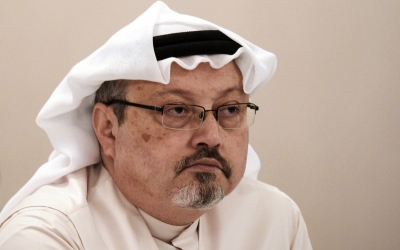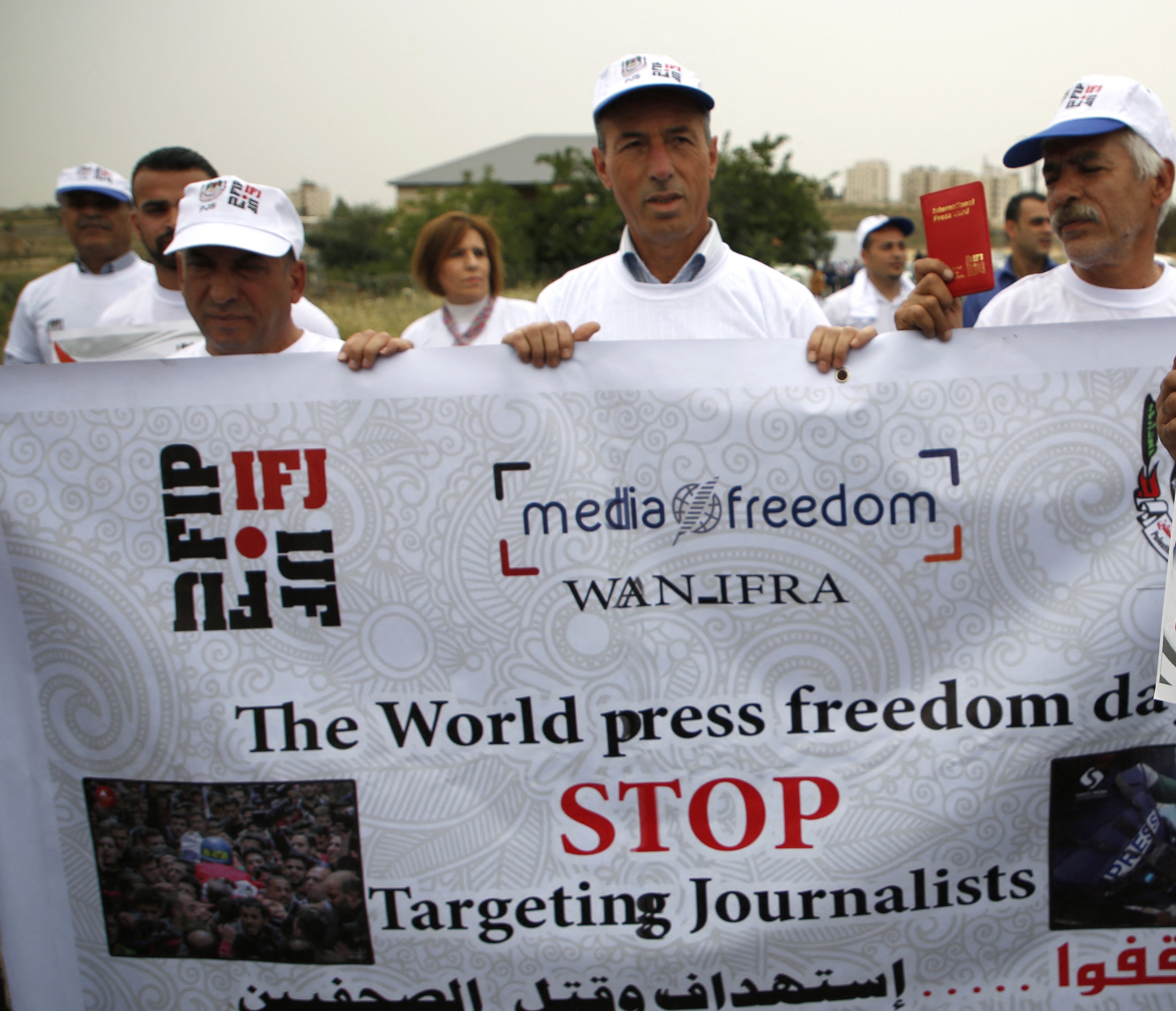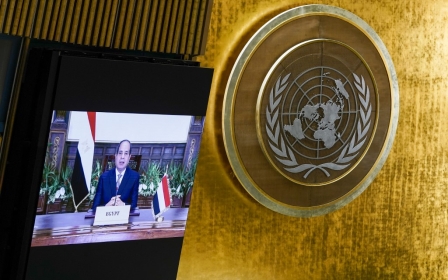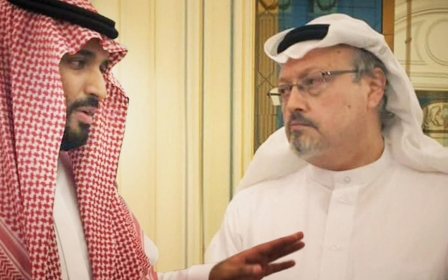Cairo, Tel Aviv, Riyadh: Tribunal puts regimes that target journalists in the dock
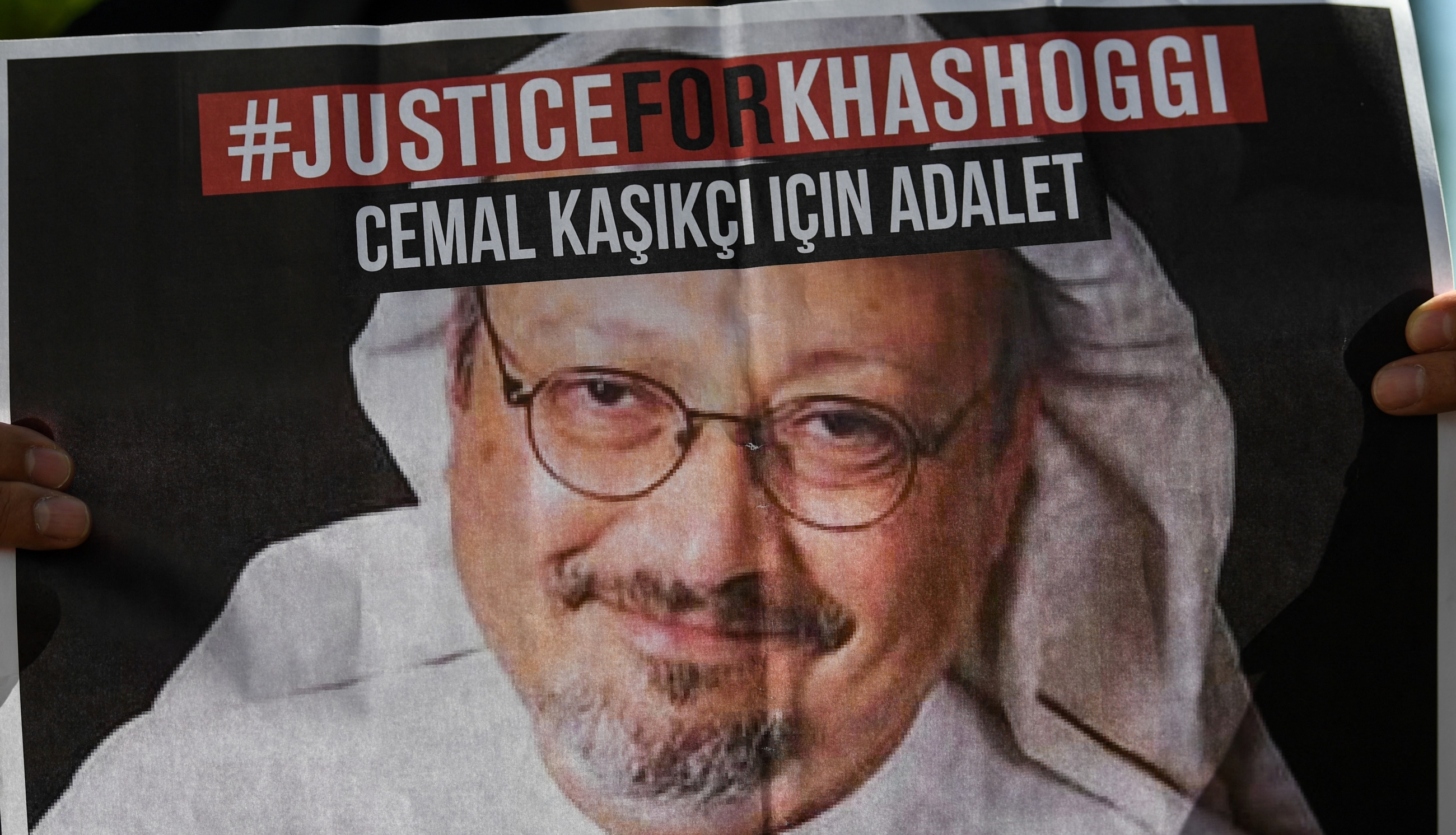
Heads of state have been getting away with murder - quite literally - for decades. The People’s Tribunal on the Murder of Journalists seeks to change this grim reality. The tribunal, which is being organised by the Committee to Protect Journalists, Reporters Without Borders and Free Press Unlimited, opened last Tuesday at The Hague and will last through the World Press Freedom Day on 3 May 2022.
It represents an opportunity to raise awareness of regime crimes against journalists, who have often been targeted and killed by repressive governments.
The tribunal's findings could increase pressure on the international community to seek formal legal recourse through the International Court of Justice
According to the Committee to Protect Journalists, 278 journalists were murdered in the decade between 2010 and 2020.
While tribunal proceedings do not hold any formal legal weight, they do offer the chance to shine a spotlight on the crimes, present detailed evidence to the global community and condemn heads of state and other leaders in the court of public opinion. Its findings could increase pressure on the international community to seek formal legal recourse through the International Court of Justice.
Although indictments will only be presented against three states - Mexico, Syria and Sri Lanka - the tribunal issues a broader admonition to countries guilty of violations, and also to key international actors. The tribunal could have significant implications for some of the Middle East’s most repressive states.
New MEE newsletter: Jerusalem Dispatch
Sign up to get the latest insights and analysis on Israel-Palestine, alongside Turkey Unpacked and other MEE newsletters
If it succeeds in creating a buzz, Saudi Arabia, Egypt and Israel, in particular, could face pressure over the long term, especially if the tribunal represents the beginning of a new, broad movement to defend journalists against despotic states.
Khashoggi murder
In 2018, Saudi Arabia's agents murdered and dismembered dissident Saudi journalist Jamal Khashoggi in Turkey.
Intelligence reports from the United States pointed unequivocally to Saudi Arabia’s Crown Prince Mohammed bin Salman as being implicated in the murder of the Washington Post and Middle East Eye columnist in the Saudi Istanbul consulate. In the months before the killing, Bin Salman formed the Tiger Squad, a 50-member death squad consisting of highly skilled Saudi operatives.
Although a handful of agents were convicted and sentenced after a sham trial, Saudi Arabia has protected Bin Salman from being held to account. Bin Salman has also been careful to shield high-ranking operatives and his closest advisers.
The murder of Khashoggi came against the backdrop of what was already a highly tyrannical system. According to Reporters Without Borders, Saudi Arabia ranks consistently as one of the world’s worst violators of media freedom. Importantly, Khashoggi’s Turkish fiancee, Hatice Cengiz, who has repeatedly called for Bin Salman’s punishment, is one of the tribunal’s attendees.
Egypt’s Abdel Fattah el-Sisi, one of Bin Salman’s closest allies, is also likely to be following the tribunal and its repercussions.
On 3 July 2013, Sisi carried out a military coup against Egypt’s first-ever democratically elected president, Mohamed Morsi, after only a year in office. Since then, Sisi has presided over a general clampdown on journalists. His regime has shut down oppositional media outlets, arrested journalists and implemented draconian legislation. In 2020, Egypt was the world’s third-worst imprisoner of journalists.
The Committee to Protect Journalists has reported eight Egyptian journalists killed since the coup, although the absence of a system of transparent investigation into crimes can make it difficult to determine whether journalists were targeted and murdered.
Israel will also likely be interested to know what sort of fallout the tribunal creates. The Israeli government has consistently targeted journalists, with at least 15 reporters killed by Israeli forces between 1992 and 2018. In May 2021, Israel destroyed more than 20 Palestinian media offices in Gaza and targeted and destroyed the Associated Press’s Gaza bureau.
US's stained record
In the aftermath of the ongoing tribunal, the United States could also face increased scrutiny over its treatment of journalists and whistleblowers. Although paying homage to free press principles, the US media system is defined largely by a propaganda system that privileges the American government, large corporations and other elites.
The US has consistently embraced some of the world’s most authoritarian regimes, including those who have acted with aggression toward journalists. For example, successive American administrations have, for the most part, turned a blind eye to crimes committed by Bin Salman, Sisi and Israel, all of whom the US considers allies.
In the case of Egypt, the US protected Sisi and embraced his roadmap, often suggesting that Egypt was on a democratic path forward.
The Barack Obama administration went to some lengths to circumvent American legal restrictions about providing aid to governments that came to power via military overthrow. For the duration of the Obama presidency, Washington elected to avoid labelling the events of 2013 a military coup. This allowed US aid to continue to flow to the Egyptian military.
The Donald Trump administration went further than the Obama administration - it was quite explicit in declaring its outright admiration for Sisi. Under Obama, Trump and now Joe Biden, America’s military aid package to Egypt - more than $1bn annually - has continued. In the aftermath of Saudi Arabia’s assassination of Khashoggi, successive American administrations have maintained constructive relations with Riyadh.
Despite multiple intelligence reports showing that the crown prince gave a direct order for Khashoggi’s murder, the US government has elected not to refer a case to the International Court of Justice. The US has also refused to sanction Bin Salman.
The US has consistently embraced some of the world’s most authoritarian regimes, including those who have acted with aggression toward journalists
More generally, the US has a stained record on media freedom. In 2003, the White House and State Department directed a propaganda campaign against the Al Jazeera news organisation. During the heart of the campaign, the US bombed Al Jazeera offices in Iraq, killing a cameraman.
More recently, the US filed espionage charges and attempted to extradite American whistleblower Edward Snowden. In an even more peculiar move for a democratic country, the US government has sought to extradite WikiLeaks founder Julian Assange, who is not an American, to the United States, on spying and other charges.
Recent reports also claim that the CIA has plotted to assassinate Assange, who is responsible for leaking thousands of messages documenting US military and other abuses. The WikiLeaks founder has been held in jail in the UK since 2019 as the extradition case is heard.
Outlook
It remains to be seen what kind of international reaction the People’s Tribunal on the Murder of Journalists might provoke, or whether it will be able to apply meaningful pressure on the international community to act against states.
Tribunals such as these do not typically yield substantial results, and powerful countries and heads of state have consistently gotten away with terrible crimes against journalists. But perhaps social and political moods are shifting, with Egypt, Saudi Arabia and Israel all facing significant pressure in recent years.
The potential fallout will be worth following in the coming months, as will the reactions of governments in Washington, Riyadh, Cairo and Tel Aviv
In 2011, Egypt witnessed the fall of a 30-year dictator, Hosni Mubarak. Although the military was able to quickly regain full power over the state, Sisi’s rule has been marked by global image crises, internal divisions and extraordinary pressure from the human rights community. Some maintain that it is simply a matter of time before Egypt’s latest dictator is ousted.
Bin Salman’s public image crisis remains substantial and is making it difficult for him to carry out his agenda. Questions remain about whether he will survive in power.
There are also some indications that Israeli power could wane in the coming years. As Ben White has argued, there are growing “cracks in the wall” of Israeli apartheid. This tribunal, then, needs to be seen as part of a larger system of pressure on despotic governments, another step on the road towards forcing consequential change.
The potential fallout will be worth following in the coming months, as will the reactions of governments in Washington, Riyadh, Cairo and Tel Aviv.
The views expressed in this article belong to the author and do not necessarily reflect the editorial policy of Middle East Eye.
Middle East Eye delivers independent and unrivalled coverage and analysis of the Middle East, North Africa and beyond. To learn more about republishing this content and the associated fees, please fill out this form. More about MEE can be found here.



